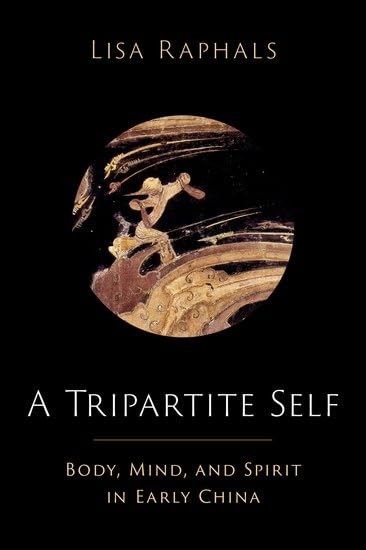She compares classical Greek and classical Chinese philosophy. I'm very happy that her office is full of books in two languages I can't read, just as she can't read my math books.
Lately she's been comparing Western 'dualistic' views of the self, where it was split into mind and body, to the views in early China. But this project became so big that her latest book, 𝘈 𝘛𝘳𝘪𝘱𝘢𝘳𝘵𝘪𝘵𝘦 𝘚𝘦𝘭𝘧: 𝘔𝘪𝘯𝘥, 𝘉𝘰𝘥𝘺, 𝘢𝘯𝘥 𝘚𝘱𝘪𝘳𝘪𝘵 𝘪𝘯 𝘌𝘢𝘳𝘭𝘺 𝘊𝘩𝘪𝘯𝘢, only covers the Chinese side.
A lot of people say Chinese philosophy was 'monistic' or 'holistic', treating the mind and body as one. But she argues that if you actually read the early texts, including medical texts, you get a different and more interesting picture, which involves body, mind and a third entity: 'spirit', or
𝘴𝘩𝘦́𝘯.
The word 𝘴𝘩𝘦́𝘯 originally referred to external 'spirits', external entities like the spirits of rivers and mountains, or spirits of dead ancestors. But in the late 4th or early 3rd century BCE, some thinkers started discussing practices that could enhance your internal 'spirit', using the same word 𝘴𝘩𝘦́𝘯.
Later thinkers developed this idea along two lines. In one, mind and spirit are closely aligned, and rule the body as a ruler rules a state. In the other, the person is tripartite, with mind and spirit as independent entities.
I think it's really cool how our understanding of personhood has evolved over time.
